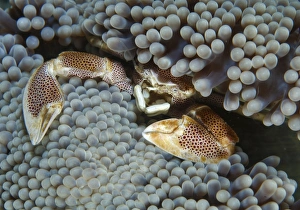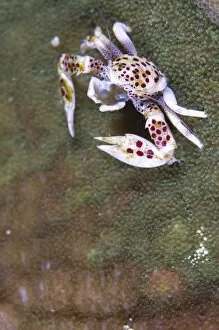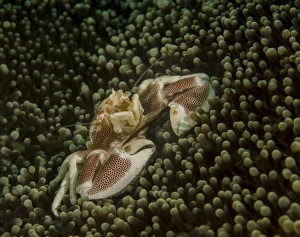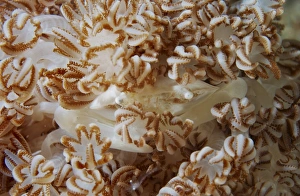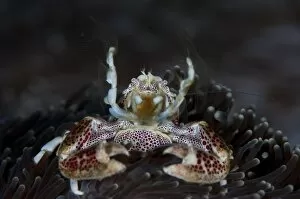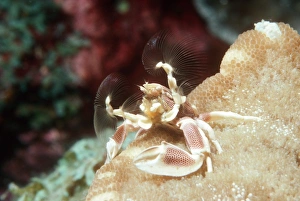Neopetrolisthes Maculatus Collection
The Neopetrolisthes maculatus, commonly known as the spotted porcelain crab, is a fascinating creature found in various locations across Southeast Asia
All Professionally Made to Order for Quick Shipping
The Neopetrolisthes maculatus, commonly known as the spotted porcelain crab, is a fascinating creature found in various locations across Southeast Asia. With its striking appearance and unique behaviors, this crab never fails to captivate marine enthusiasts. In Gorontalo, Sulawesi Indonesia, you can spot the spotted porcelain crab seeking refuge within anemones. Its vibrant spots beautifully contrast against the delicate tentacles of these sea creatures, creating a mesmerizing sight. Feeding on plankton seems to be one of this crab's favorite activities. In the Solomon Islands, it indulges in this nutritious feast with great enthusiasm. Watching it delicately pick at tiny organisms floating by is truly a spectacle worth witnessing. Sometimes, the red-spotted porcelain crab prefers to hide amidst grey anemones for protection. Its ability to blend seamlessly into its surroundings showcases nature's remarkable camouflage techniques. Moving back to the Solomon Islands again reveals another feeding frenzy of these crabs on plankton. Their relentless pursuit for sustenance highlights their adaptability and resourcefulness in surviving underwater. Venturing into Lembeh Strait in Indonesia unravels yet another stunning scene – a porcelain crab nestled comfortably within anemone tendrils. This symbiotic relationship between two species exemplifies nature's intricate balance and interconnectedness. Not limited to just one color variation, we also encounter white porcelain crabs residing among beige soft corals in North Sulawesi. The subtle hues create a harmonious display that complements their dainty presence perfectly. As filter feeders, these crabs play an essential role in maintaining ecological equilibrium beneath the waves. By consuming suspended particles from water columns or filtering out organic matter from currents passing through them, they contribute significantly to nutrient cycling and overall ecosystem health. From Sulawesi to Solomon Islands and beyond—Neopetrolisthes maculatus continues enchanting divers and researchers alike with its diverse habitats and feeding habits.


